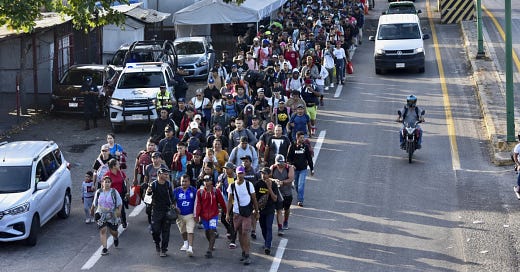The causes of illegal immigration
North-South cooperation and improving productivity are the solutions
The colonial foundations of the modern world-system
European colonial domination of vast regions of the Americas, Asia, and Africa from 1492 to 1914 is the fundamental cause of the development of the West and the creation of underdevelopment in the colonized region. Said global inequality, in turn, is the primary cause of the massive and uncontrollable migration from the Global South and East to the most advanced economies of the West.
Beginning in the period following the First World War, the colonized peoples forged movements that sought to transform colonial political-economic structures and to preserve and renovate their cultural traditions. However, Western institutions of higher education were not capable of colonial analysis, that is, seeking understanding from a perspective grounded in the fundamental objective reality of the colonial situation. Western academic institutions were fragmented into the distinct disciplines of philosophy, history, economics, political science, socio…


